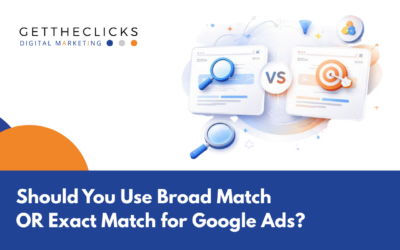When you begin a UX project without understanding who your users are, it becomes harder to design an experience that feels natural. This is why user personas sit at the center of effective UX design.
A persona represents a realistic representation of a user group based on real behaviors, motivations, and goals that influence how people interact with your product or service. Their purpose is to keep you aligned with what users expect, not what you assume.
While marketing personas focus on buying triggers, UX personas focus on task completion, context, and interaction needs, making custom web design for better UX essential for building smooth, intuitive experiences.
How Personas Shape the UX Design Process
When you build personas with intention, you gain clarity that shapes every stage of the design process. Navigation becomes easier to structure because you understand how users search for information and how they mentally organize tasks.
Content layout follows their reading patterns and priorities, allowing you to guide them with smoother flows.
Personas-based insights also enhance usability testing by helping you recruit participants who genuinely reflect real users. Instead of broad feedback, you receive targeted insights that challenge or confirm your assumptions.
They also serve as a bridge between user realities and business goals. You can match product objectives with the motivations that matter most to your target audience.
This creates a design environment where every decision supports both user needs and business outcomes, making the product more coherent and impactful.
Where to Find the Best Data for Creating Personas
You build stronger personas when you gather data from diverse, trustworthy sources that reveal both what users do and why they do it. Each data source adds a different layer of insight that helps you create effective user personas.
- CRM Data gives you a record of user histories and long-term behavior patterns that reveal how different personas evolve over time.
- Support Transcripts highlight recurring problems and pain points that users experience in their own words.
- Sales Calls uncover expectations, motivations, and emotional triggers that users do not typically share in surveys, offering valuable insights for landing page optimization to lower bounce rates.
- Product Usage Logs show actual data and real behavioral evidence of how users navigate your product and where friction occurs.
- Zero Party Data provides voluntarily shared preferences and intentions that help you understand your users and personalize experiences.
How to Segment Users for More Accurate Personas
To elevate the quality of your personas, you can use more advanced segmentation techniques.
Clustering algorithms in analytics tools reveal natural user segments based on real behavior patterns rather than assumptions. These groups often highlight unique needs or fictional personal details that may not be obvious through manual analysis.
Segmenting by user intent and journey stage further strengthens accuracy because it reflects what people want at specific moments, not just who they are.
When you pair quantitative data analysis with rich qualitative insights from user interviews, you create user personas that blend statistical personas with human nuance.
The numbers show what users do while the conversations reveal why. This combination leads to engaging personas that reflect real-world data and help you design experiences that respond to authentic motivations.
What to Include in a Strong and Useful Persona Profile
A strong persona profile gives you the clarity you need to design with confidence. It focuses on details that directly influence how a user experiences your product.
- Name and Behavior Archetype: Give your persona a simple, memorable name and a behavior archetype that captures how they make decisions. This helps you understand their personality traits and anticipate how they respond to different interactions.
- Goals and Frustrations: Identify user persona goals, ie, what the user wants to accomplish and the obstacles that make their tasks harder. These insights reveal where your design needs to offer support or remove friction and highlight practical ways to build UX personas.
- Motivations and Decision Drivers: Clarify why the user chooses specific actions and what influences their choices. Understanding these motivations helps you shape interactions that feel natural and encouraging.
- Devices and Usage Environment: Note the devices they rely on and the physical or digital environment where they use your product. Both factors affect layout, readability, accessibility, and overall usability.
- Trigger Moments and Decision Behaviors: Describe what prompts the user to start a task and how they evaluate their options. These behaviors help you design flows that align with their pace, expectations, and decision-making style.
How to Confirm That Your Personas Reflect Real User Behavior
Personas need continuous validation to reflect actual users. Session replays help you see how people navigate real interactions.
- Heatmaps show where attention is focused and where confusion slows progress.
- A and B testing allows you to compare design variations with persona assumptions to see if reality aligns with expectations.
These tools reveal whether your persona creation decisions genuinely support target users’ needs. It also helps to maintain living personas that evolve as your product changes and new key data emerges.
This prevents persona drift, which happens when profiles go stale and lose relevance. By consistently updating personas, you maintain a design foundation that stays aligned with your user base.
How to Use Personas Effectively in Every Design Stage
Personas become most influential when you use them in every design phase. Early in the process, they guide onboarding decisions, form length, call-to-action copy, and content hierarchy.
During prototyping, empathy mapping helps you visualize the emotions and expectations connected to each interaction. This enhances your ability to model interactions that feel natural and supportive.
When you integrate personas with customer journey maps, you see how each user group moves through your product differently. This cross-referencing helps you build experiences that adapt to diverse needs rather than applying a single pattern for every audience. The result is a product that feels more thoughtful, intuitive, and responsive.
Common Mistakes to Avoid When Building User Personas
It is easy to make missteps when creating personas, especially when the process feels abstract or rushed. Knowing what to avoid helps you build profiles that truly support your design decisions.
- Using Fictional or Stereotypical Details
Adding fictional characters or stereotypes may make a persona sound interesting, but it disconnects the profile from real data. This leads to design decisions that miss actual user needs and motivations. - Creating Too Many Personas
A large set of personas with overlapping traits creates confusion instead of clarity. Fewer core personas allow your design team to focus on what matters most. If you’re wondering how many personas to create, aim to represent key segments without making exclusionary personas. - Ignoring Data and Relying on Assumptions
Personas built on guesses rather than research findings tend to be shallow and misleading. Grounding them in market research ensures they reflect how users think and act. - Lack of Stakeholder Alignment
If teams do not understand or believe in the personas, they will not use them consistently. Clear communication and cross-departmental involvement help everyone stay on the same page. - Failing to Update Personas Over Time
The persona creation process isn’t static. Defined personas must evolve as user needs change. Regular updates ensure you maintain effective personas that reflect evolving behavior.
How AI and New Technology Are Changing Persona Development
The future of persona creation is shifting with new technologies and methodologies. AI-generated proto-personas use predictive analytics to build behavior models at scale, helping you identify patterns and uncover valuable insights before they appear in traditional research.
Dynamic personas, powered by real-time tracking, automatically adjust as users change habits, revealing trends within user archetypes that evolve with your product.
As these methods grow more sophisticated, ethical considerations become essential. Responsible data points, transparent processes, and privacy awareness ensure that persona templates remain both effective and respectful.
Transform Your UX Strategy with Get the Clicks
If you want personas that truly guide your design decisions, Get the Clicks is here to help you build them with clarity and purpose. Our team can turn your user insights into powerful profiles that elevate every stage of your UX process. Reach out today and start creating experiences that connect, convert, and keep users coming back.





